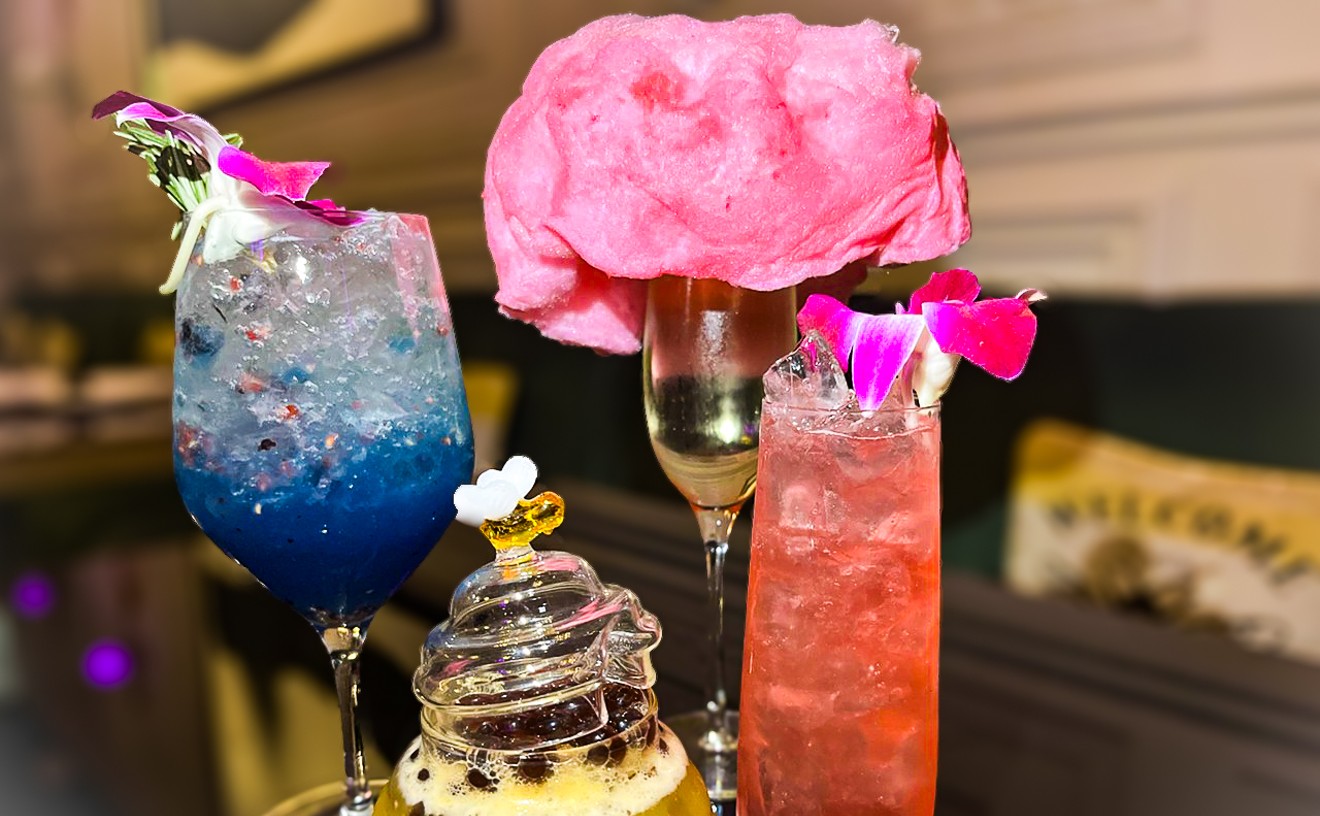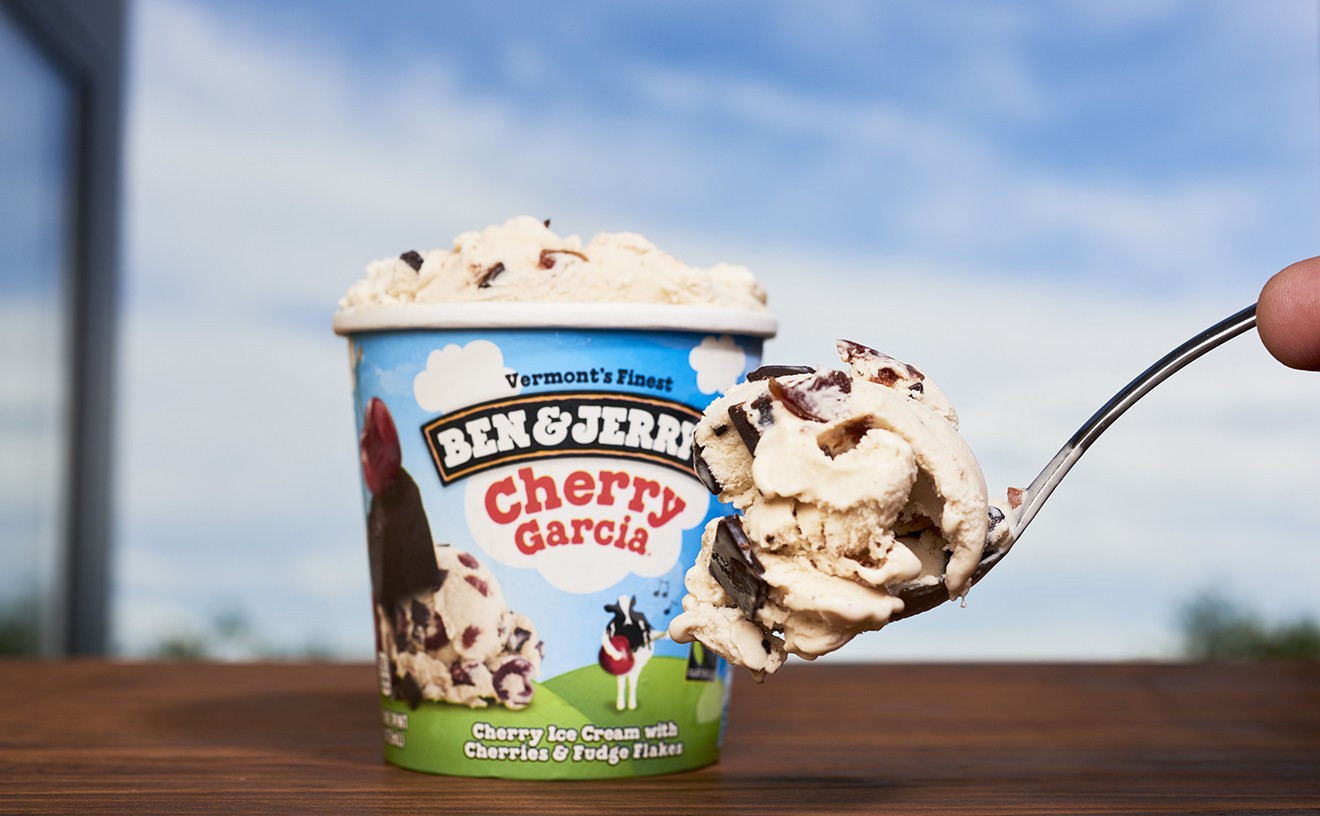Christianity is such an ingrained aspect of Texas’ culture as to be almost invisible, especially the conservative brands of evangelical and Southern Baptist Protestantism represented by Dallas Theological Seminary and Southwestern Baptist Theological Seminary, respectively. Both schools, naturally, teach that to be a Christian, believers must accept Jesus Christ as savior. Both endorse the inerrancy of the Bible and a traditional set of morals: no extramarital sex, no foul language and certainly no vaping. When it comes to alcohol, however, their paths diverge.
On July 1, 2015, scarcely a year after SBTS President Paige Patterson reiterated the school’s opposition to ministers consuming alcohol, DTS quietly revised its covenant to allow students to consume alcohol off-campus, reversing the school’s 91-year drinking ban. DTS gives a detailed explanation of the change on an FAQ page online, citing Biblical passages that affirm scriptural permission for moderate drinking. More broadly, this reflects a shift in the way American Christians interact with popular culture, moving toward engagement rather than withdrawal. For four groups active in DFW, at least, beers and the places that pour them are not just outposts of evangelism. They’re evidence, if not outright proof, that God loves us and wants us to be happy.
The Beer & Bible Consortium may be the first Christian apologetics organization to keep an atheist consultant on retainer. This is not the only thing that makes them unique in DFW’s evangelical landscape. As their logo indicates, pint glasses and pipe tobacco are integral elements of the BBC’s efforts to create reasonable grounds for belief in the Gospel."We don’t think there’s a place where we should not be, proclaiming the truth of Christ and the truth of Scripture. If you do, you’ve got a much bigger issue than the fact that some of us drink beer.”
tweet this
Once a month, the BBC meets at a public, beer-pouring establishment (recent venues include Fort Worth’s World Of Beer and The Door in Deep Ellum) to explore some fundamental topic in theology, philosophy or science. This summer, the format has centered on debates between theists and atheists; Zachary Moore, a Dallas-area scientist and atheism advocate, works closely with the BBC to help select an ideal sparring partner. Attendance frequently reaches into the hundreds, drawing evenly from both parties. BBC events are also broadcast online, where devoted viewers tune in from around the globe.
Dragon’s Milk and Ten Fiddy are the unofficial beverages of the BBC. Both are burly, complex stouts — overwhelming for the harried but immensely rewarding to the patient. If the bar doesn’t stock them, BBC special orders them for the event, where these dense, nuanced beverages serve as apt analogies for the discussions themselves.
BBC debates are rigorous. Our visit to a June session at The Door marked the first (and probably last) time we will hear a professor delineate axiological foundations from ontological ones on a platform built for stage-diving. Yet, no matter how heated an exchange gets, a spirit of mutual respect and affection rules the room. In a bitterly polarized political and cultural climate, it’s an oasis of civility.
Ezra Boggs is master of ceremonies for BBC events and serves as the group’s public face. With his navel-length beard, shaved head and reading glasses perpetually sliding halfway down his nose, he presents as equal parts rock-and-roller and Neo-Reformed sage — which, it turns out, is a pretty apt description. In a music career that took him coast to coast playing gigs with everyone from Amy Grant to Yo La Tengo, Boggs logged countless hours in smoky clubs, most all of which were slinging iced-down adult beverages. Where other Christians saw dins of iniquity or, at best, proximate occasions of sin, Boggs saw his mission field.
“There are pastors that have told me ‘For the first time, my neighbor will go with me to an event,’” Boggs said in an interview with the Observer. “‘He won’t visit my church, but he didn’t miss a BBC with me.’ So I think there is this sense of neutrality.”
For a Christian organization to commit itself completely to a secular setting and truly open forum for discussion is unprecedented in the Dallas area, if not the nation. For Boggs, the BBC’s choice to embrace beer and throw down with some of the most notable atheists in the U.S. is a divine directive.
“[In] a lot of the correspondence I have from people that don’t necessarily agree or understand, they’ll say statements like ‘What are you doing in those places with those people?’” he said. “I’m like, ‘When you say that, you make me sound a lot like Jesus.’ We don’t believe there’s a Gospel-free zone. We don’t think there’s a place where we should not be proclaiming the truth of Christ and the truth of Scripture. If you do, you’ve got a much bigger issue than the fact that some of us drink beer.”
If the BBC goes to the pub to give skeptics reasons for faith, Beer & Theology and Theology Live come to help believers navigate faith's mysteries. Both programs are ministries of churches belonging to the Anglican Communion: Beer & Theology is offered by All Saints Dallas, a congregation planted by The Anglican Mission In The Americas. Theology Live comes from the Episcopal Church of the Incarnation. Coincidentally, they both meet on a weekly basis every June, at two different locations of The Ginger Man (Lakewood for All Saints, Uptown for Incarnation).
The similarity between each event was apparent during our visit to each series’ final sessions in late June. Both took place in the bars’ upper rooms, where attendees perched on bar stools and squeezed together on balcony picnic tables. Evenly divided between men and women and ranging in age from the early '20s to the late '60s, both crowds carried the cheer of a good friend’s birthday party. Pints of stout and IPAs were the beers of choice — unconscious nods, perhaps, to the place of the pub in the Anglican patrimony.
Spiritual formation was the theme of Beer & Theology this summer, and its speaker was Skip Ryan. Formerly a pastor at Park Cities Presbyterian Church, Ryan’s struggles with addiction and relapse are a matter of very public record. Listening to someone in recovery give a talk in a bar was intense, but that backstory lent his message that evening — how to live a life of “heroic weakness” — some authority. For the final edition of Theology Live, Incarnation invited William J. Abraham, a theology professor from SMU, to speak about death and the afterlife, a task he undertook with a blend of personal anecdote, scripture and Irish wit.
Both talks illustrated the via media ecclesiology of the Anglican church. Ryan and Abraham cited the Roman Catholic saint Mother Theresa and the Orthodox bishop Anthony Bloom, in addition to Protestant touchstones like St. Augustine and C.S. Lewis. Despite such erudite references, the messages were simple: Control is overrated. Death is not the end. Jesus understood himself to be a failure. Eye has not seen and ear has not heard. Just trust. Around the room, people nodded and sipped their beers.
Speaking with the Rev. Chris Myers, who pastors All Saints’ East Dallas location and oversees the Beer & Theology series, we learned the majority of All Saint’s parishioners (including himself) did not grow up in the Anglican tradition. The high concentration of converts has had both spiritual and cultural impact on the community.
“In Dallas, it’s hard to find somebody who hasn’t had an experience of Christianity — so you have a lot of what we call ‘over-churched’ people that think they know exactly what Christianity is because they’ve had certain experiences of it,” he said. “We want to reframe that and help the over-churched sort of detox and help the under-churched have an experience that’s not a caricature of the faith.”
Besides facilitating fellowship between believers, Myers found an elegant analogy between fermentation and faith. “We believe God made the world and then he gave it to us to cultivate and make. So wheat and barley are good things, but when you put them together with water and yeast, it becomes an even better thing,” he said.
“That’s part of what it means to be human — to take this stuff around us and make something new. I think of theology in that same way. We’re given the world and the time and the place that we live in, and we have to take all of that and put it together and make it into something else that helps people understand who they are and what matters.”
At Theology Live, we fell into conversation with Erin Jean Warde, who was also a first-time visitor. Like Myers, she didn’t grow up in the Anglican Communion, and, also like him, she is a priest. Known to the congregants of the Church of the Transfiguration as Mother Erin, she described the unique pastoral opportunities presented when (no pun intended) a priest walks into a bar.
“Whether we like it or not — and I don’t like it — people feel vastly uncomfortable in church,” Warde said. “The people I’m talking about feel like they can’t walk into the church or, when they do, they feel judged. Past experiences can make church even traumatic for people. I think it’s important to realize that the church not only just sort of hurts or bothers or challenges people, but there’s actual trauma for some of these people that is not present when they walk into a bar.
“Most of my friends from back home don’t go to church,” Warde continued. “When really rough things happen in the world, it’s just me. Some of the conversations I had with people, where later they converted to Christianity, happened in bars. There’s something to be said for showing up — and that’s a Gospel premise for me.”
Medieval monks were the first to give us great ales, so it is perhaps poetically appropriate that the first church to take Jesus back to the pub in North Texas was Roman Catholicism. According to Jeff Hedglen, the director of campus and young adult ministry for the Diocese of Fort Worth, the Theology On Tap program first came to Fort Worth 15 years ago, with events now occurring in Wichita Falls, Colleyville and Denton. The program focuses on 20- and 30-something Catholics, practicing or otherwise, inviting them to ask questions about church teaching in a setting outside the parish hall. Hedglen noted a unique audience for discussions of faith — the waitstaff.
“The most conversation that is generated is from the servers,” Hedglen said. “I’ve had conversations with multiple servers who say, ‘Oh yeah, I used to go to church,’ and then we have a very long conversation about life and faith and everything, and it’s an opportunity for them to maybe reconnect or rethink about things.”
According to Hedglen, other patrons have also wandered into the conversation, some at louder volumes than others. He recalled one instance in particular that perfectly illustrates the way all of these groups are changing the way that Christians think about pairing their love of God with their love for ale.
“The first time they had Theology On Tap in Denton, right in the middle of our event, 20 people from a biker group pulled up and came in,” he recalled, chuckling. “One of the women was a former Catholic and she peppered the priest with all kinds of questions. It was awesome.”










